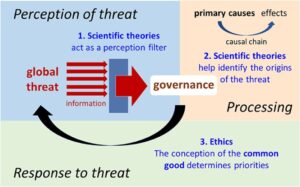
Card games for brain health are more than just a fun pastime; they serve as a powerful tool for cognitive enhancement. Whether you’re gathering with friends or enjoying a quiet evening at home, these games engage your mind and boost your mental agility. With a variety of card games available, from strategic battles to luck-based challenges, there’s something for everyone to enjoy while reaping the numerous cognitive benefits.
As we dive into this fascinating subject, we’ll explore how playing card games can improve memory, concentration, and even emotional well-being. It’s incredible to think that a simple deck of cards can foster critical thinking skills and promote social interaction, making it an excellent option for individuals of all ages looking to keep their minds sharp.
Importance of Card Games for Brain Health
Playing card games is not just a pastime; it’s a cognitive workout that can significantly enhance brain health. Engaging with card games stimulates various mental faculties, making it a fun and effective way to keep your mind sharp as you age.The cognitive benefits of playing card games are substantial. These games require players to use critical thinking, strategize, and remember rules, all of which contribute to improved brain function.
Additionally, card games can bolster memory and concentration, making them a valuable tool for maintaining cognitive abilities over time. Moreover, the social aspect of these games can provide psychological relief, reducing stress and fostering a sense of community.
Cognitive Benefits of Playing Card Games
The impact of card games on cognitive function can be categorized into several key areas:
- Memory Enhancement: Regularly playing card games requires players to remember cards, rules, and strategies, which can lead to improved memory retention.
- Concentration Improvement: Focusing on the game helps enhance attention span and the ability to concentrate on tasks.
- Reduction of Cognitive Decline: Engaging in mentally stimulating activities like card games may slow down the onset of dementia and other cognitive disorders.
- Mood Regulation: Card games can act as a stress reliever, promoting better mental health through social interaction and engagement.
Types of Card Games Beneficial for Brain Health
A diverse array of card games can stimulate brain activity, each offering unique benefits. Understanding these games and their impacts is essential for maximizing cognitive health.Some popular card games that are particularly beneficial include:
- Bridge: A strategy-based game that enhances critical thinking and teamwork skills.
- Poker: This luck-based game combines chance and strategy, requiring players to assess probabilities and make quick decisions.
- Solitaire: A single-player game that focuses on problem-solving and strategic planning.
- Rummy: A game that encourages memory use and combination recognition.
The cognitive benefits of these games can vary significantly based on their type. Strategy-based games like Bridge promote critical thinking and planning, while luck-based games like Poker can improve quick decision-making skills. Players from different age groups can experience varying benefits; for instance, younger players may develop better strategic thinking, while older adults can engage in memory-enhancing activities.
Diverse Cognitive Benefits Across Age Groups
It’s important to recognize how different age groups can gain from card games:
- Children: Games help in developing memory and social skills.
- Adults: They enhance strategic thinking and problem-solving abilities.
- Seniors: Playing card games can mitigate cognitive decline and improve memory.
Mechanisms of Brain Engagement in Card Games
The mental processes involved in card games are intricate and involve various cognitive skills working in harmony. Playing card games engages several brain functions, enhancing problem-solving skills and critical thinking. Players need to evaluate their options, anticipate opponents’ moves, and devise strategies—all of which stimulate different areas of the brain.Social interaction is another critical component of card games. Participating in multiplayer games fosters communication and cooperation, which can enhance emotional well-being.
The camaraderie developed through shared gaming experiences can lead to stronger social bonds and a sense of belonging.
Mental Processes in Card Games
When playing card games, various mental processes are at play:
- Strategic Thinking: Players analyze situations and develop plans based on available information.
- Memory Use: Remembering cards, rules, and strategies is crucial.
- Emotional Regulation: Managing emotions during competitive play can improve emotional resilience.
Designing a Card Game Routine for Optimal Brain Health
Incorporating card games into daily routines can be straightforward and enjoyable. Here’s a step-by-step guide to make card gaming a regular part of your life:
- Choose Your Games: Select games that match your cognitive goals, whether you aim to enhance memory or strategic skills.
- Set Regular Times: Dedicate specific times during the week for playing card games, either alone or with friends.
- Engage Others: Invite friends or family members to join you, enhancing the social aspect and making it more enjoyable.
- Keep It Fun: Create a light-hearted atmosphere and avoid overly competitive attitudes to ensure a positive experience.
Recommended Card Games Based on Cognitive Goals
For specific cognitive goals, consider the following recommended games:
| Cognitive Goal | Recommended Card Games |
|---|---|
| Memory | Solitaire, Uno |
| Strategy | Bridge, Poker |
| Social Interaction | Rummy, Hearts |
Challenges and Solutions in Playing Card Games for Brain Health

While playing card games can be beneficial, several challenges may hinder regular participation.Common challenges include lack of time, difficulty finding players, or frustration with learning new games. However, solutions abound:
- Time Management: Schedule shorter game sessions during breaks or weekends to fit gaming into a busy lifestyle.
- Online Platforms: Use online platforms to play with others when in-person games aren’t feasible.
- Gradual Learning: Start with simpler games and gradually increase complexity to avoid frustration.
Adapting the choice of games based on skill levels is crucial. Beginners may benefit from more straightforward games, while experienced players can challenge themselves with complex strategies.
Researched Benefits of Card Games on Cognitive Function
Numerous scientific studies have validated the cognitive benefits of card games. Research indicates that regular engagement in these games can lead to improved cognitive functions and reduce the risk of cognitive decline.Key findings from studies include:
- Enhanced Memory: Research shows that older adults who play card games regularly exhibit better memory retention.
- Problem-Solving Skills: Players often demonstrate improved problem-solving abilities due to strategic gameplay.
- Social Connectivity: Studies highlight that social engagement through card games can lead to better mental health outcomes.
Experts in neuroscience emphasize the long-term benefits of regular card game play, suggesting it can enhance neural connectivity and overall cognitive resilience.
Social Aspects of Playing Card Games

The social dynamics of playing card games are vital for emotional well-being. Engaging with others during gameplay can significantly improve mood and reduce feelings of isolation. Card games encourage interaction and cooperation, fostering stronger relationships among players. Participating in group settings such as card clubs or community centers can enhance the social benefits of playing. These gatherings not only provide regular gaming opportunities but also create a supportive community focused on mental wellness.
Strengthening Relationships through Card Games
Card games can fortify social bonds. The collaborative and competitive nature of these games encourages participants to communicate and connect with one another, thereby enhancing emotional well-being.
Future Trends in Card Games for Cognitive Health
The landscape of card gaming is evolving, with emerging trends focusing on cognitive health benefits.Technological advancements have led to the rise of app-based card games that promote cognitive engagement. These games often feature tutorials and adaptive challenges that cater to various skill levels, making them accessible to everyone.As the gaming industry continues to evolve, developers are increasingly incorporating features that support mental wellness, paving the way for a future where card games are recognized not only for entertainment but also for their cognitive health benefits.
Conclusive Thoughts
In conclusion, incorporating card games into our lives is not just about entertainment; it’s about investing in our brain health. The mental engagement, social interaction, and cognitive stimulation offered by these games can lead to lasting benefits for our minds. So, whether you’re a seasoned player or a newcomer, consider making card games a regular part of your routine for both enjoyment and mental wellness.
FAQ Compilation
How often should I play card games for brain health?
Playing card games a few times a week is recommended to maximize cognitive benefits.
Can children benefit from playing card games?
Yes, children can develop critical thinking and social skills through card games.
Are there any specific card games that are best for memory improvement?
Games like Concentration and Memory are specifically designed to enhance memory skills.
What age group can benefit most from card games?
People of all ages, from children to seniors, can benefit; the key is choosing the right games for each group.
Can I play card games alone, or do I need others?
Many card games have solo variations, but playing with others can enhance the social benefits.





![[Card] Balancing Forces : r/collectivecg](https://biovac.info/wp-content/uploads/2025/07/p8aoiyni6ex21-300x300.jpg)